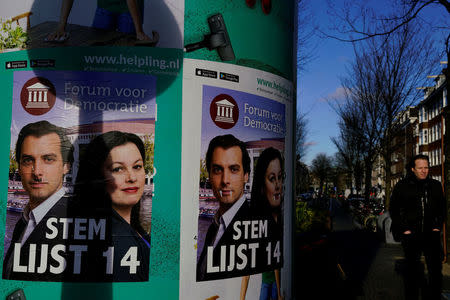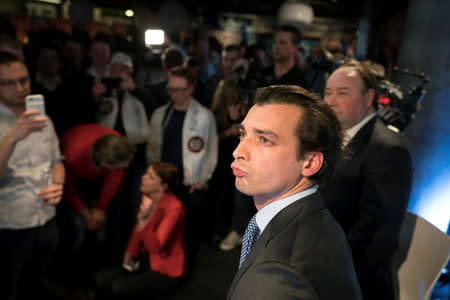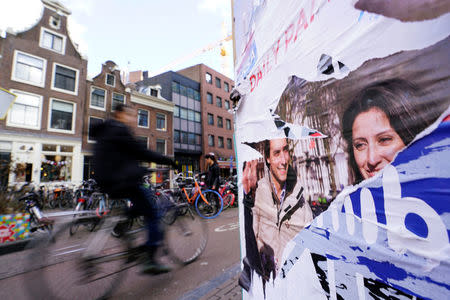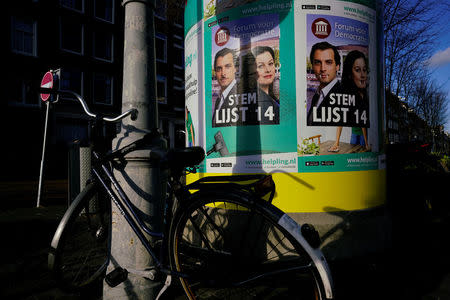New-look Dutch nationalist party wins seats in Amsterdam election
By Toby Sterling
AMSTERDAM (Reuters) - A new nationalist party led by a self-styled intellectual won two seats in Amsterdam in Dutch municipal elections seen as heralding the fragmentation of the country's far right.
The Forum for Democracy, which has touted what it calls Dutch cultural superiority and denounced the European Union, took 4.9 percent of the vote, good for two seats in the 45-member assembly of the largest Dutch city.
Although the party is participating only in Amsterdam, traditionally a liberal bulwark, national opinion polls show it is now the third most popular in the Netherlands.
An admirer of Donald Trump and Vladimir Putin, Forum for Democracy leader Thierry Baudet has siphoned voters from anti-Islam lawmaker Geert Wilders, who has been a fixture among European right-wing populists since 2006.
Baudet, a swaggering 35-year-old writer who entered the Dutch national Parliament after winning two seats in the March 2017 parliamentary election, echoing Trump's call to "drain the swamp", said his party would upend Amsterdam politics.
"We can bring so many things to light, we can throw spanners in the works, we'll turn over so many stones," he told ANP news.
Baudet has been called sexist and racist for various remarks he has made, including saying last year that women "generally excel less in many occupations and lack ambition" and that Dutch "people are being homeopathically diluted by mixing them with all the peoples of the world".
But his words have struck a chord with some and the Forum for Democracy has drawn adherents of Wilders' Freedom Party, which has lost more than a third of its popular support and is now polling in seventh place nationally.
Wilders' party, currently the second largest in parliament, has struggled to find suitable candidates to compete in the local elections.
Anti-migrant sentiment played an important role in the election campaign, though which housing shortages and rapidly rising rents were also central issues.
Conservative Prime Minister Mark Rutte, whose approval ratings have remained solid amid an economic boom since he formed a third cabinet in October, campaigned to deny refugees preferential treatment for housing.
"People who come from outside to the Netherlands have to properly take their place at the back of the line," Rutte said in an election eve debate. "But there are still cities that give asylum seekers preference."
Separate to the municipal elections, Dutch voters narrowly voted in a national referendum to approve a new law granting intelligence agencies the ability to install bulk taps on Internet traffic.
(Reporting by Toby Sterling; Editing by Mark Heinrich)

 Yahoo News
Yahoo News 




